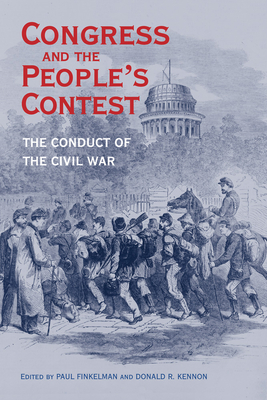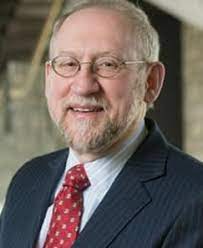

 Ohio University Press
Ohio University Press
Congress and the People's Contest: The Conduct of the Civil War


Key Metrics
- Paul Finkelman
- Ohio University Press
- Paperback
- 9780821423059
- 8.9 X 6 X 0.8 inches
- 0.8 pounds
- History > United States - 19th Century
- English
 Secure Transaction
Secure TransactionBook Description
The American Civil War was the first military conflict in history to be fought with railroads moving troops and the telegraph connecting civilian leadership to commanders in the field. New developments arose at a moment's notice. As a result, the young nation's political structure and culture often struggled to keep up. When war began, Congress was not even in session. By the time it met, the government had mobilized over 100,000 soldiers, battles had been fought, casualties had been taken, some civilians had violently opposed the war effort, and emancipation was under way.
This set the stage for Congress to play catch-up for much of the conflict. The result was an ongoing race to pass new laws and set policies. Throughout it all, Congress had to answer to a fractured and demanding public. In addition, Congress, no longer paralyzed by large numbers of Southern slave owners, moved forward on progressive economic and social issues--such as the transcontinental railroad and the land grant college act--which could not previously have been passed.
In Congress and the People's Contest, Paul Finkelman and Donald R. Kennon have assembled some of the nation's finest scholars of American history and law to evaluate the interactions between Congress and the American people as they navigated a cataclysmic and unprecedented war. Displaying a variety and range of focus that will make the book a classroom must, these essays show how these interactions took place--sometimes successfully, and sometimes less so.
Contributors: L. Diane Barnes, Fergus M. Bordewich, Jenny Bourne, Jonathan Earle, Lesley J. Gordon, Mischa Honeck, Chandra Manning, Nikki M. Taylor, and Eric Walther.
Author Bio
A specialist in American legal history, constitutional law, and race and the law, Professor Paul Finkelman is the author of more than 150 scholarly articles and more than 30 books. His op-eds and shorter pieces have appeared in the New York Times, the Washington Post, USA Today, and on the Huffington Post. He was recently named the ninth most cited legal historian according to "Brian Leieter's Law School Rankings."
He is an expert in constitutional history and constitutional law, freedom of religion, the law of slavery, civil liberties and the American Civil War, and legal issues surrounding baseball. He has written extensively on Thomas Jefferson and on Abraham Lincoln. Professor Finkelman was the chief expert witness in the Alabama Ten Commandments monument case and his scholarship on religious monuments in public spaces was cited by the U.S. Supreme Court in Van Orden v. Perry (2005). His scholarship on the Second Amendment has also been cited by the Supreme Court. In 2002 he was a key expert witness in the suit over who owned Barry Bonds' 73rd home run ball.
C-SPAN was on the Albany Law School campus in fall 2010 to tape Professor Paul Finkelman's two-hour class on the Dred Scott case. The program aired nationally and is now part of C-Span’s series on American History. He has also appeared on other C-Span programs, on PBS, and the History Channel.
Education
- B.A., Syracuse University
M.A., Ph.D., University of Chicago
Fellow in Law and Humanities, Harvard Law School
Source: Albany Law School
Community reviews
Write a ReviewNo Community reviews



